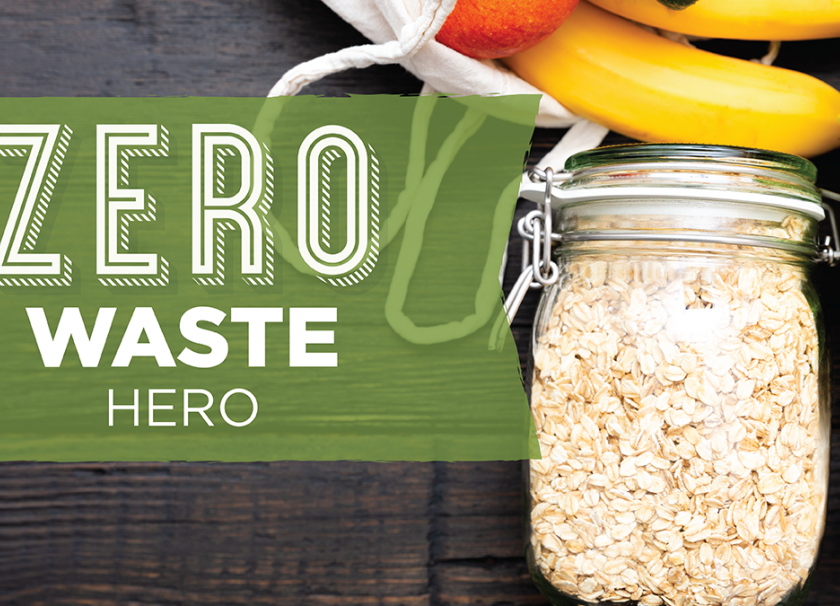
Tips for a Sustainable Kitchen
By Mahlea Rasmussen, Education Coordinator
Outside of work I spend a lot of time in the kitchen. I find it a soothing space to create nourishing meals and lasting memories. I find it essential to be as eco-friendly as possible and a few changes can transform your kitchen into a sustainable center of your home.
The choices begin with shopping for your food. It is important to stay organized so you don’t end up over-shopping or purchasing items you already have. This can lead to food waste - the USDA found that Americans on average each waste a pound of food per day. To avoid this, create a list on a chalkboard or white board and take a photo, so you know just what to purchase.
Don’t shop when your hungry. Although all of us have been there and heard this before, we are much more likely to purchase unnecessary items when our tummies are doing the talking.
Leave your reusable tote bags in the car, so you don’t leave them at home. After unloading your goods, run out to the car one more time and throw your bags in the back seat. That way you won't be caught without them next time you hit the market. Some estimates put the average 'lifespan' of a plastic bag at just 12 minutes.
Shop in the bulk and produce departments to avoid packaging and bring your own containers. The beautiful thing about bulk is that it goes far beyond food items: shampoo, dishwashing detergent, pet food and more are available. Because you can bring your own containers to fill, you're skipping the single-use packaging that many products on the shelf come in.
When shopping for produce, I choose a bag made from recycled plastic bottles available for $0.50 in our produce department. For dry goods, a muslin cloth bag is also available for the same price. For flours and liquids, I bring my own glass jars and bottles.
Shopping for herbs and spices with your own containers is especially advantages as you can save as much as 95% on the goods you buy. Remember: every time you purchase an item in a container, part of the cost is paying for the container itself.
At home some other ways to make your kitchen more sustainable is by growing your own herbs and making your own products. This doesn’t have to be overly time consuming. Herbs, rosemary, oregano and thyme are easy to grow and require minimal time.
Having a stock container in your freezer can significantly reduce your waste and save you money. Most vegetable scraps can be used such as carrot ends, celery and onion. After boiling the stock vegetables you can compost them as long as there is no meat product or oil used.
Replace soft drinks with infused water you make at home. Fill a pitcher with refreshing citrus, mint or cucumber. Not only is this good for your budget, but it's good for your waistline by reducing unnecessary sugar intake.
Another item found commonly in kitchens and easily eliminated is paper towels: it’s easy to sub in some worn out, clean t-shirts and cloth napkins.
And finally, when you're serving dinner, create smaller plates. Those who are hungry can always go back for more, but you will end up throwing out less uneaten food.
The benefits of a zero waste kitchen go beyond the trash compactor. You will find yourself saving money and eating clean. “The zero waste lifestyle is not about complicating your life; it’s about simplifying.” - Bea Johnson.
More Co-op News
Looking to Save Money at the Co-op?
By Laura Pfister, Media Coordinator
We hear from time to time that people feel the Co-op is higher priced than other stores. In the past, we may have earned this perception. But not anymore. We took a long, hard look at ourselves and we talked with other Co-ops across the country. Together, we are pooling our resources to bring you organic, household staples at everyday competitive, low prices. Welcome to Co+op Basics.

45 Years Strong
On Valentine’s Day, the Ashland Food Co-op turns 45 years old.
It’s hard to imagine we’ve been providing healthy, organic food to the Rogue Valley for almost half a century. From our humble beginnings as the Ashland Community Food Store to now a thriving Co-op with over 10,000 owners, it has been an honor to serve this community.
Let’s take a brief stroll down memory lane and see how far we’ve come in 45 years.

Saving Paper One Coupon at a Time
To further our sustainability efforts and to serve you better, we began offering Electronic Owner Coupons this month at the register.
No more forgetting to bring your owner coupons. No more waiting for your newsletter to arrive. Cashiers will simply ask if you want to use your owner coupons when you check out.
A few key points to remember:
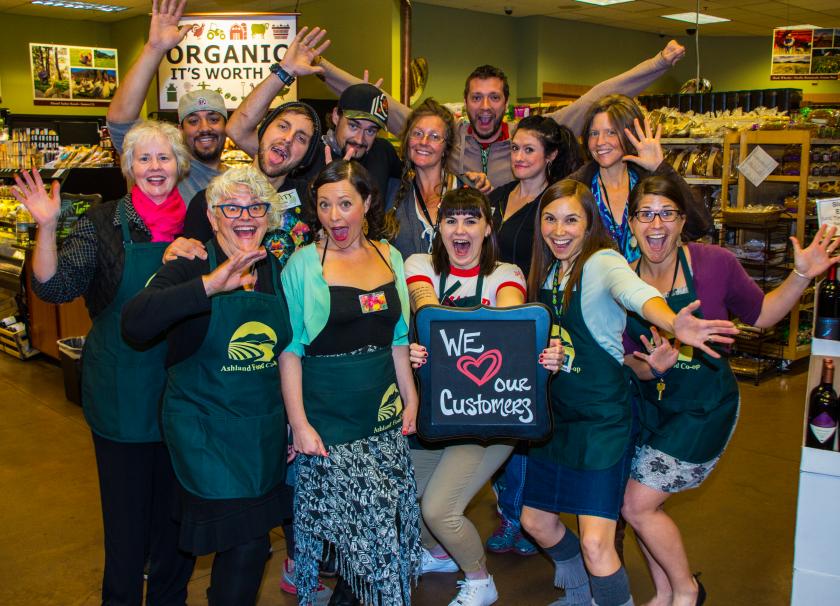
Thank YOU For a Wonderful Year!
2016 had many notable moments. We hosted many successful family friendly events, added 150 more solar panels to our roof, and earned 25% of our sales for local products. We proudly donated over $24,000 to area nonprofits through our Community Grants program. We welcomed 482 new owners and averaged 3,500 daily transactions.
Whew! And that is just a small sample.

Give Local
The food holiday season has finally arrived. This time of year is by far our most favorite. We’ve been dreaming of gingerbread cookies, pumpkin pie, mashed potatoes, turkey (or tofurky if that’s your fancy) and eggnog for months.
But beyond the holiday feasts, we love this time of year for another reason. It’s the season of giving. Amidst the shopping frenzies, family gatherings, and parties, giving back often becomes an afterthought.
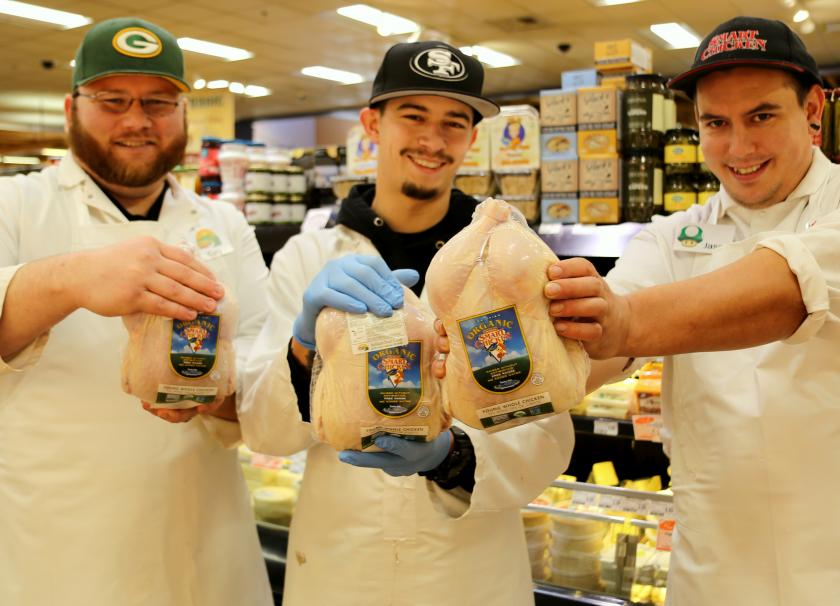
Happy Thanks-chicken!
We know, we know, November is all about turkey. But let us not forget the other, other white meat this holiday season. Chicken. This poultry meat often gets the spotlight, but during the month of November it is well deserved. Why? Because all month long, every time you purchase a Smart Chicken® product at the Co-op you help feed a hungry family in the Rogue Valley.
Here’s how it works:
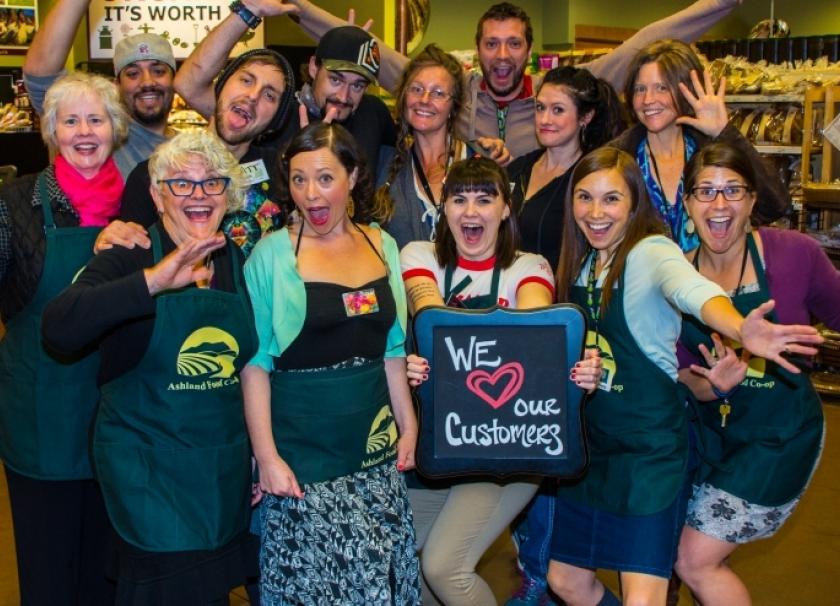
Co-ops Grow Communities
Co-ops around the world share a set of guiding principles including “cooperation among cooperatives,” and “concern for community.” We take these principles to heart.
When you shop at the Co-op, you aren’t just buying groceries. You are supporting a business that cares about people and contributes to a livable, sustainable Rogue Valley.
Did you know?
-
In 2015, we donated over $24,000 to area nonprofits.
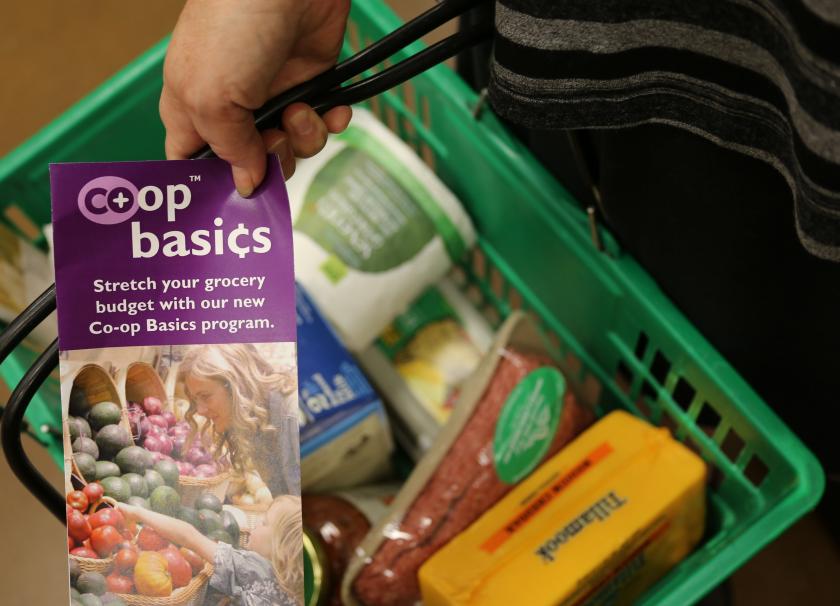
Feed an (Italian) army with Co+op Basics
My Italian Grandmother’s heart swells every time she sees my well-stocked pantry. I am prepared to feed an army at a moment’s notice, and sometimes that actually happens with my big family. But what my Grandma doesn’t know is how much I save by stocking my pantry with Co+op Basics products.
We Love Local
We take pride in supporting local farmers, producers, vendors and vintners. When we say local, we mean local. At some grocery stores, the word local gets thrown around like the word “natural,” ambiguously and with a broad definition.
But local means something to us. A definition we take meticulous pride in.
Local adjective
Any food or product grown, produced or made within 200 miles.
Let’s use it in a sentence. The Ashland Food Co-op supports an average of 250 local companies.
Wanted: Wormy Apples, Fallen Plums & Over Ripe Pears
Urban fruit is copious this time of year in the Rogue Valley. It’s hard, dare we say impossible, to make enough pies, cobblers, and salads to keep up with the backyard abundance.
So what do you do with all that unpicked fruit?
Instead of letting your pears, plums and apples go to waste, or to feed the deer, bring them to the Co-op for collection.
Apple Outlaw Cider, in collaboration with the local community, is setting out to create a one of a kind hard cider, dubbed “Apple Outlaw Community Cider”.
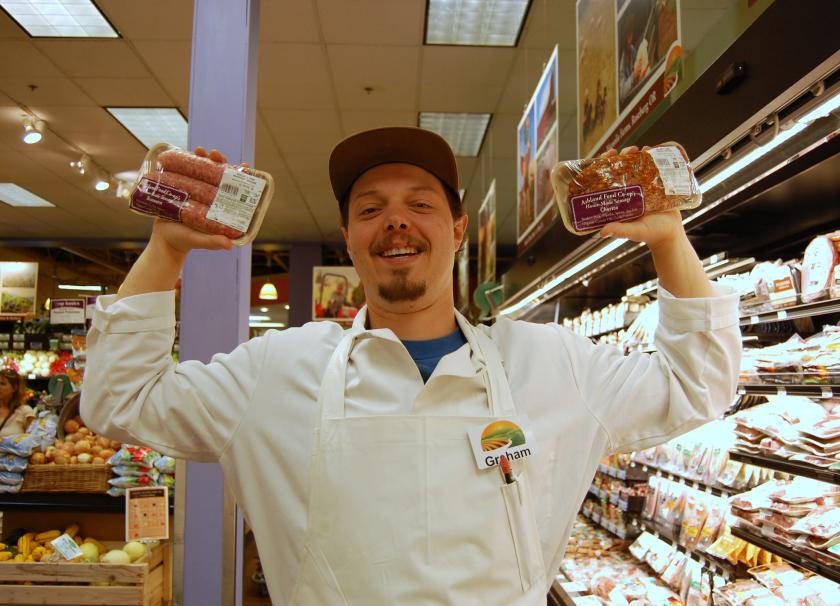
Fire Up The Grill
Break out of your dinner rut with something fast and juicy. The Meat Department staff share their go-to favorites to throw on the grill. Flame on, baby!
Brian Swift
Flat Iron is my favorite steak. So simple to cook. Just add salt, pepper, garlic, and cook it on a super hot grill. 5 minutes later you have an amazing steak.
Sam Roberts
TriTip marinated in our Kinders barbeque sauce, seared on both sides with a little pink in the middle, is what I really enjoy the most.
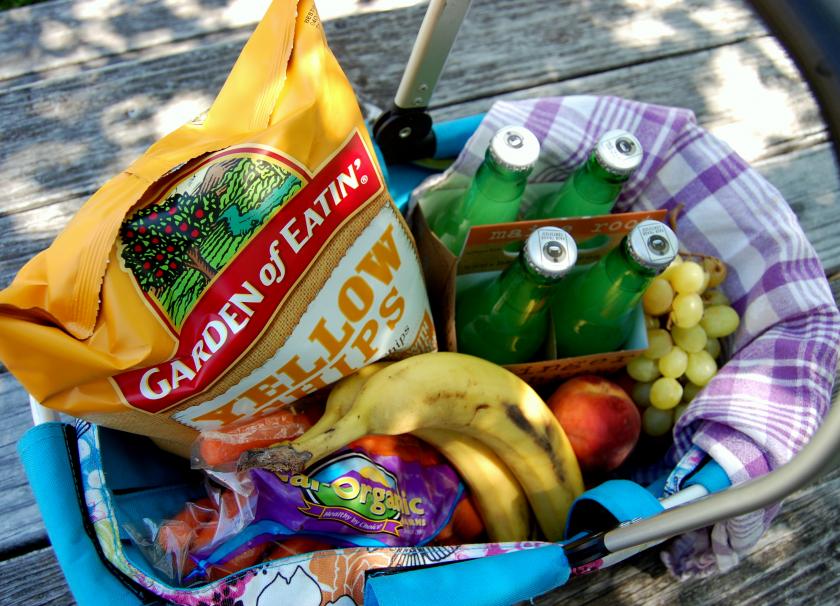
Summer Picnic Guide
Everyone loves a picnic. But some are better at organizing one than others. Make planning the perfect picnic a breeze with our easy picnic guide.

A Party for YOU
Each year we hold an Annual Meeting and Owner Picnic. This is our chance to catch up over a delightful picnic and most importantly update you on the recent year’s events and financials.
This year, we are changing things up a bit. The Annual Meeting and Owner Picnic will be more family friendly than ever before. We have a new menu designed to appeal to busy little (and big!) hands so you and your kiddos have time to enjoy one of our many family friendly activities.
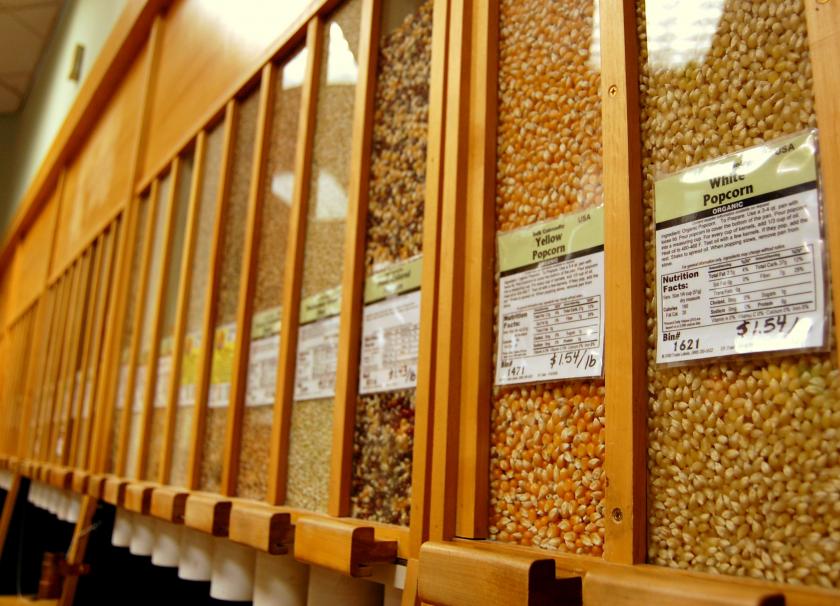
6 Reasons to Buy in Bulk
Bulk bins have been a staple at the Ashland Food Co-op since we opened our doors in 1972. For good reason too, buying in bulk is better. Better for your pocket book, better for the environment, and better for your belly. Here’s why.
6 Reasons to Buy in Bulk

Co-op + Community = A Perfect Match
At the Co-op, we are all about community. After all, YOU are why we are here and providing healthy, organic food to the Rogue Valley.
As a cooperative enterprise, there are seven principles we follow. We use them as guidlines to put our values into practice. Principle 7, Concern for Community, affords us the opportunity to give back to local nonprofits that do so much good in this beautiful place we call home.
